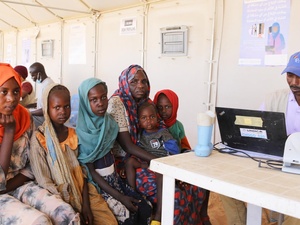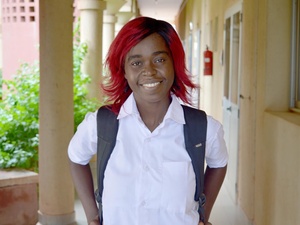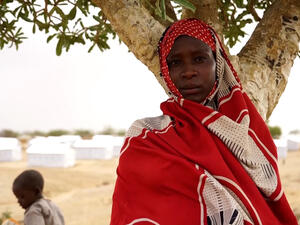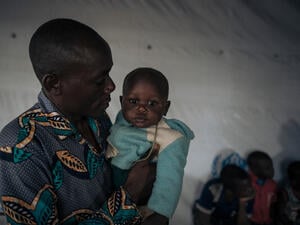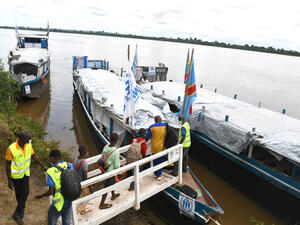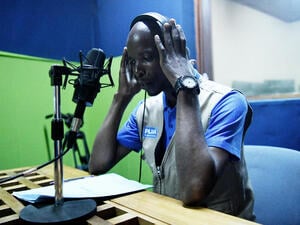Fresh violence forces 1,500 civilians to flee in Central African Republic
Fresh violence forces 1,500 civilians to flee in Central African Republic
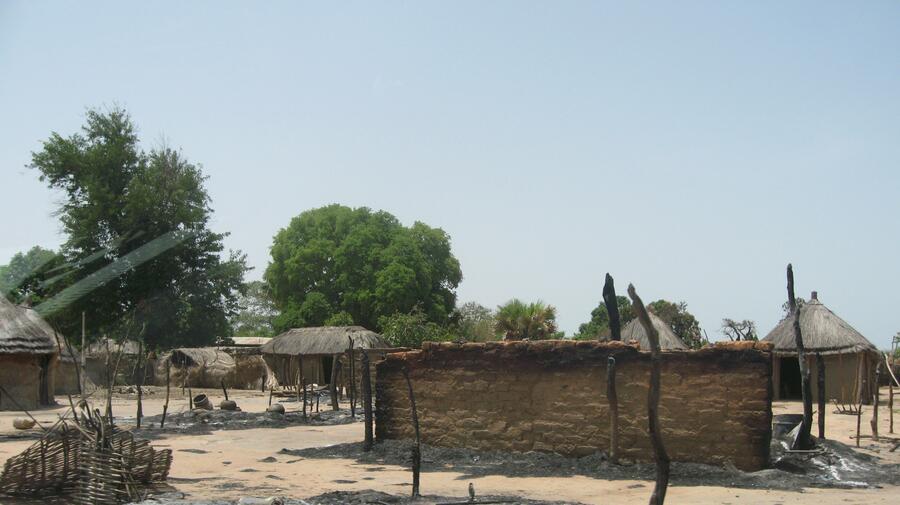
Some of the damage after a village was attacked in the north of Central African Republic.
BANGUI, Central African Republic, March 25 (UNHCR) - A fresh outbreak of fighting between armed groups and herdsmen in Central African Republic has forced at least 1,500 people to flee their villages near the northern town of Batangafo.
The UN refugee agency is deeply concerned about the continuing dire security and humanitarian situation in the north of the country, where conflict between various parties over the past five years has left more than 180,000 people internally displaced.
"The continuing violence since 2005 threatens the lives and well-being of tens of thousands of civilians in the north," Aminata Gueye, UNHCR's representative in the Central African Republic, said. "More violence is not helping, because it is stretching our already limited resources and making it more difficult for us to meet the needs of the IDPs [internally displaced people]," she added.
In the latest wave of violence, a group of spear-carrying cattle herders on horseback last week attacked villages near Batangafo, located 500 kilometres north of the capital Bangui. They were reportedly retaliating for a March 13 attack on their settlements by armed men, which left two villagers dead.
At the weekend, staff from UNHCR and several other humanitarian organizations visited Batangafo to assess the situation. They found that 13 villages had been burned, 17 people killed and five wounded by gunshot. They also reported that at least 1,500 people had been displaced in and around Batangafo. The figure could be higher because many people fled into the bush.
"The displaced that we met were terrified. Most of them were women and children and they need urgent help," said Daniel Bangui, a UNHCR protection officer. "The situation must be worse for those who are in the bush because this is an area where the basics, like food, health care and water, are scarce."
Many of the newly displaced are being hosted by local families, whose own living conditions were already poor. Some families in the isolated area have taken in up to eight IDPs. The situation could get worse during the coming rainy season. UNHCR plans to provide assistance to the IDPs and to host families.
The situation around Batangafo remains tense. Meanwhile, local officials reported that an attack by herdsmen some 300 kilometres to the west had left six people dead and three injured. While the two incidents do not appear to be related, UNHCR is concerned about any escalation in violence which would affect its work helping IDPs as well as thousands of refugees.
UN High Commissioner for Refugees António Guterres visited the Central African Republic earlier this month in a bid to draw international attention to the plight of 30,000 refugees and about 183,000 IDPs that UNHCR is helping to protect and assist there. The refugees are mostly from the Democratic Republic of the Congo, Chad, Rwanda and the Sudan
The north of the country has been plagued by chronic insecurity since 2005, due to the presence of rebels and bandits. The civilians in the region have been harassed by these armed groups and around 150,000 have fled to Cameroon or Chad. However, despite its instability, the north has also been a place of asylum for refugees.
Guterres said the international community had a duty to help the Central African Republic deal with the humanitarian crisis. "It is unfair that all the attention is focused on Iraq, Afghanistan and Sudan when tens of thousands of civilians are living in dreadful conditions in Central African Republic," he said during his visit.
By Djerassem Mbaiorem in Bangui, Central African Republic


